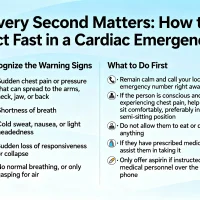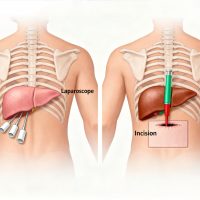
Your Health Shouldn’t Take a Holiday
Be Prepared: How to Find Trusted Medical Care While Traveling – Traveling opens doors to new experiences, cultures, and adventures. However, unexpected health issues can arise anywhere, anytime. Whether you’re exploring tropical beaches, hiking mountain trails, or navigating bustling city streets, knowing how to access quality medical care can make the difference between a minor inconvenience and a major crisis.
Essential Steps Before You Travel
Research Your Destination’s Healthcare System
Before departing, familiarize yourself with the healthcare infrastructure of your destination. Understand whether the country has public or private healthcare systems, what languages medical staff typically speak, and the general quality of medical facilities available.
Verify Your Insurance Coverage
Contact your insurance provider to understand what medical expenses are covered while traveling internationally. Many domestic insurance plans have limited or no coverage abroad. Consider purchasing travel health insurance that specifically covers emergency medical treatment, hospital stays, and medical evacuation if necessary.
Prepare Your Medical Information
Create a comprehensive medical summary including your current medications, known allergies, chronic conditions, and emergency contact information. Keep both physical and digital copies easily accessible. Ensure prescription medications are in their original containers with clear labels.
Finding Quality Medical Care While Traveling
Identify Reputable Healthcare Facilities
Not all medical facilities abroad meet international standards. Look for hospitals and clinics that are internationally accredited, have English-speaking staff, and maintain modern equipment. International hospital chains and facilities catering to expatriate communities often provide higher standards of care.
Use Reliable Resources
Your embassy or consulate can provide lists of recommended healthcare providers. International SOS, travel insurance companies, and reputable travel guides also maintain databases of trusted medical facilities worldwide. Online reviews and recommendations from fellow travelers can provide additional insights.
Understand Emergency Protocols
Learn the local emergency numbers and procedures. Know how to request an ambulance and understand that emergency room procedures may differ from what you’re accustomed to at home.
Red Flags to Avoid
Be cautious of facilities that demand immediate full payment, lack proper licensing documentation, have outdated equipment, or cannot provide treatment records. Trust your instincts if something feels wrong about a medical facility or provider.
Planning for Common Travel Health Issues
Stomach Issues and Food Poisoning
Digestive problems are among the most common travel health complaints. Stay hydrated and seek medical attention if symptoms persist or worsen. Severe dehydration requires professional treatment.
Minor Injuries and Accidents
Cuts, sprains, and bruises happen during active travel. While minor issues can often be self-treated, deeper wounds, suspected fractures, or head injuries require immediate medical evaluation.
Tropical Diseases and Infections
Depending on your destination, you may be exposed to diseases uncommon in your home country. Fever, unusual rashes, or persistent symptoms warrant professional medical assessment.
Communication is Key
Language barriers can complicate medical situations. Translation apps, medical phrase books, or professional interpreter services can help communicate symptoms and understand treatment recommendations. Many international medical facilities employ multilingual staff specifically to assist foreign patients.
Medication Considerations
Bring adequate supplies of prescription medications, as familiar brands may not be available abroad. Understand local pharmacy regulations and know the generic names of your medications. Some countries have strict rules about bringing certain medications across borders.
Technology and Medical Care
Modern travel apps can help locate nearby hospitals, pharmacies, and medical services. GPS capabilities ensure you can find and navigate to medical facilities quickly. However, don’t rely solely on technology in emergency situations.
When to Seek Immediate Care
Chest pain, difficulty breathing, severe bleeding, loss of consciousness, high fever with confusion, or severe abdominal pain require immediate medical attention regardless of location. Don’t hesitate to seek emergency care when facing serious symptoms.
Building Your Travel Health Safety Net
Consider registering with your embassy upon arrival in a new country. They can assist in medical emergencies and help coordinate care if needed. Maintain contact with family or friends who know your travel itinerary and can assist in emergencies.
Your Trusted Medical Partner in Bali
When traveling in Bali and the surrounding Indonesian islands, having access to international-standard medical care provides invaluable peace of mind. BIMC Hospital Kuta offers comprehensive healthcare services with English-speaking medical professionals, modern facilities, and direct insurance billing for many international providers.
Our experienced team understands the unique health challenges travelers face and provides immediate care for everything from minor injuries to serious medical emergencies. We maintain international hospital standards while offering the personalized attention you need when far from home.
BIMC Hospital Kuta
Jl. Bypass Ngurah Rai No. 100X, Kuta, Badung, Bali 80361
Call Centre +62 811 960 8500 (09.00 am -17.00 pm)
Emergency Call 24 Hours: +62 361 761 263 / +62 812 386 5548
www.bimcbali.com / IG : bimchospital.kuta / FB : BIMC Hospital Kuta
BIMC KUTA International Standard Healthcare in Bali
Experience the confidence that comes with knowing quality medical care is always within reach during your Indonesian adventure.
© 2025 BIMC Hospital Kuta. All rights reserved.











